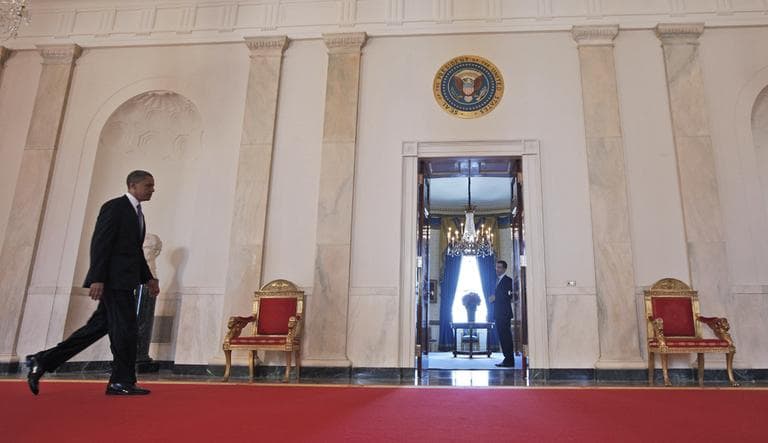Advertisement
PAYNE & DOMKE
SCOTUS Gives Obama A Second Chance

Before attempting to draw the political implications of the Supreme Court’s upholding of the health reform act, we should reflect on what it means. The Supreme Court of the United States, SCOTUS, has reaffirmed a fundamental shift in the way America delivers and pays for health care. It is potentially the biggest change in American health policy since the 1965 act that created Medicare, which remains, along with Social Security, the most popular and untouchable program of our national government.
Roberts Rules
A win is a win is a win. Regardless of how the court reached its ruling on the Affordable Care Act, Chief Justice John Roberts might have mildly tamped down the resentments Americans (mostly Democrats) felt about SCOTUS in the wake of Bush v. Gore and the Citizens United cases. A Republican-controlled court was becoming a much discussed topic of the chattering class.
The current conservative majority on the Court is the ideological soul mate of the one that handed the presidency to George W. Bush in 2000, after a series of dubious moves and decisions by various Republican public officials in Florida. Bush would later appoint Roberts and Sam Alito to the high court.
Likewise, in the Citizens case, the five led by Roberts came under fire for expanding the original case in ways that threaten fair elections by removing all restraints on political spending by corporations and billionaires. The decision triggered a deluge of dollars pouring into campaigns in the form of superPACs that to date have run nothing but attack ads. In elections, money talks.
A Much Needed Do-Over
The health care ruling allows President Obama a do-over on what he neglected to do when the law was being debated: sell its benefits. Having failed to promote the law once it was signed into law, the SCOTUS has given the president and his Democratic allies a second chance.
Ignorance Hurts
The Pew Research Center found that those who know the least about the law are the most likely to think it’s bad for them. Only 18 percent of those polled claim to understand the law well, while 31 percent say they don’t understand it well or at all. As Greg Sargent blogged at The Washington Post, before the court’s ruling: “The less people know about the law, the more they want the court to throw it out. Maybe that's bad messaging by Democrats, or the Right's very successful sowing of confusion.”
Actually, it’s both. Democrats quit messaging once the president signed the bill into law. Meanwhile, Republicans spun wild yarns such as Sarah Palin’s fabricated “death panels” to scare people about their care and the lives of loved ones. Even the language used by the news media favored the law’s Republican critics, according to a different study from the Pew Research Center. Phrases such as “government run” greatly outnumbered terms such as “pre-existing conditions” that Democrats used.
Back On The Attack
The day the decision was announced, Republicans were on the attack again, claiming the decision and the law would hurt the economy. The only proof offered for such assertions is anecdotal. A senator on national TV said, “I talked to a guy in my district that runs a small business and he’s scared to death of the new health care law.”
Of course, he is. The Republicans convinced him that the devil he knows — ever growing insurance premiums, no protections for pre-existing conditions, and lifetime caps on insurance coverage — is better than the one he doesn’t know.
With the law preserved, the president and Democrats can emphasize aspects of the law that people like and are already using, such as allowing adult children under age 26 to remain on their parents’ insurance. Even Scott Brown, who opposes the law, uses that provision to insure his daughters.
No Free Riders
In his attacks on the ruling, Mitt Romney forgets that those who participated in the negotiations that led to the Massachusetts health reform law know that Romney was adamant on the need for an individual mandate. He felt it was essential to deal with “free riders.”
In a 2009 USA Today column, Romney urged Obama to follow the Massachusetts example, especially the now-hated individual mandate.
“Our experience also demonstrates that getting every citizen insured doesn't have to break the bank," Romney wrote. "First, we established incentives for those who were uninsured to buy insurance. Using tax penalties, as we did, or tax credits, as others have proposed, encourages ‘free riders’ to take responsibility for themselves rather than pass their medical costs on to others. This doesn't cost the government a single dollar.” (Did you notice “tax penalties?")
Deval In A Great Place
The decision puts Gov. Deval Patrick in the spotlight and in an ideal position to duel with his predecessor. Patrick is the only governor in America who knows firsthand what health reform looks like. His campaigning for the president should take the form of explaining the benefits of the Affordable Care Act, especially in swing states, with his own state’s experience as evidence.
Reopening the debate on health care reform can only help the president and Democrats. The SCOTUS has given the president and the law new life.
This program aired on June 29, 2012. The audio for this program is not available.
